Governing Board Officers Elected
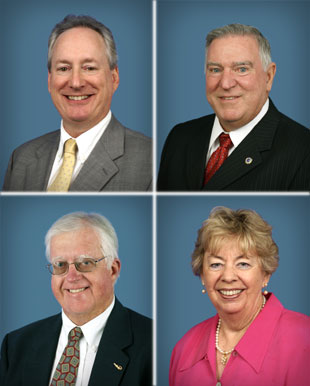 Clockwise from top left: Chair Todd Pressman; Vice Chair Ronald E. Oakley; Secretary Hugh M. Gramling; Treasurer Sallie Parks.
Clockwise from top left: Chair Todd Pressman; Vice Chair Ronald E. Oakley; Secretary Hugh M. Gramling; Treasurer Sallie Parks.
 Clockwise from top left: Chair Todd Pressman; Vice Chair Ronald E. Oakley; Secretary Hugh M. Gramling; Treasurer Sallie Parks.
Clockwise from top left: Chair Todd Pressman; Vice Chair Ronald E. Oakley; Secretary Hugh M. Gramling; Treasurer Sallie Parks.
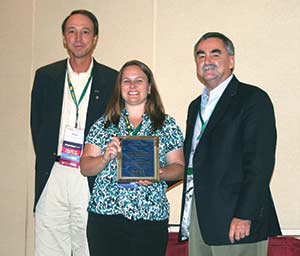 Veronica Craw, District environmental section manager, accepts the award from Blake Guillory, Florida Stormwater Association (FSA) president, and Kurt Spitzer, FSA executi
Veronica Craw, District environmental section manager, accepts the award from Blake Guillory, Florida Stormwater Association (FSA) president, and Kurt Spitzer, FSA executi
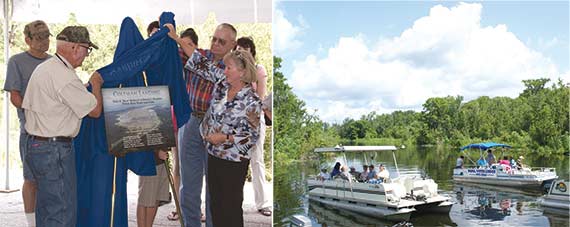 Left: Jim W. Veal, Sr., George L. Buhmeyer and Phyllis Hanson-Moffitt unveiled the plaque that recognizes Evan A. “Billy” Merritt, David C.
Left: Jim W. Veal, Sr., George L. Buhmeyer and Phyllis Hanson-Moffitt unveiled the plaque that recognizes Evan A. “Billy” Merritt, David C.
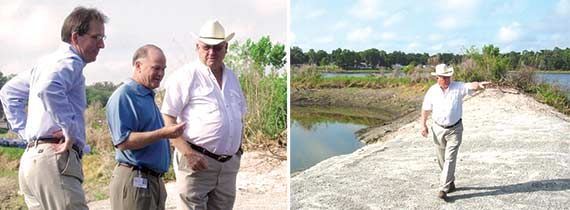 Left: Mike Holtkamp, District operations director, and David Moore, District executive director, discuss the berm project with State Senator Char
Left: Mike Holtkamp, District operations director, and David Moore, District executive director, discuss the berm project with State Senator Char

A Polk County Builders Association (PCBA) program aimed at teaching residents about Florida-friendly landscaping was recognized as a finalist in the nonprofit
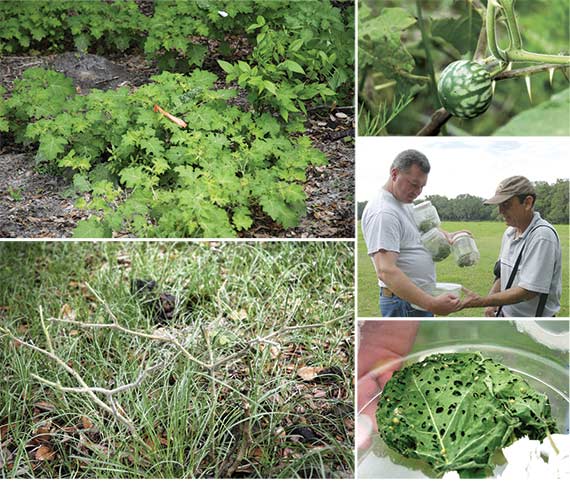 Clockwise from top left:1: This marked plant indicates beetles were placed on it so the rancher does not tamper with it.
Clockwise from top left:1: This marked plant indicates beetles were placed on it so the rancher does not tamper with it.
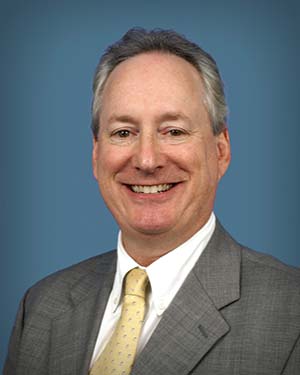 Governing Board Chair Todd Pressman.
Governing Board Chair Todd Pressman.
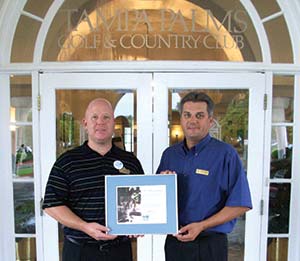 Dave Kupstas, general manager, and Rich Closs, service director, proudly display the Lakeview Grille’s Water PRO certificate.
Dave Kupstas, general manager, and Rich Closs, service director, proudly display the Lakeview Grille’s Water PRO certificate.
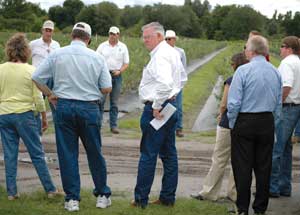 District staff and contractors discuss floodplain concerns with residents.
District staff and contractors discuss floodplain concerns with residents.